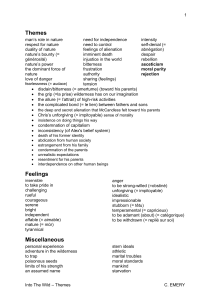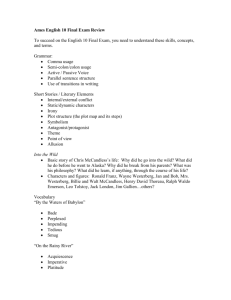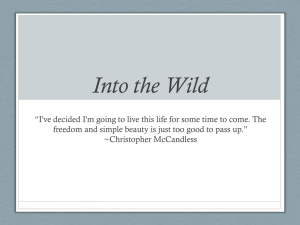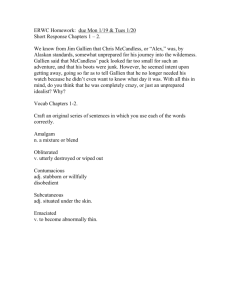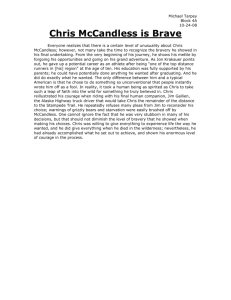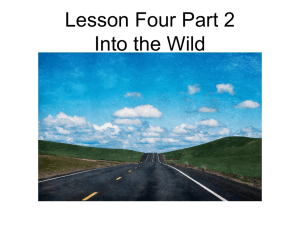McCandless: Hero or dumb jerk
advertisement
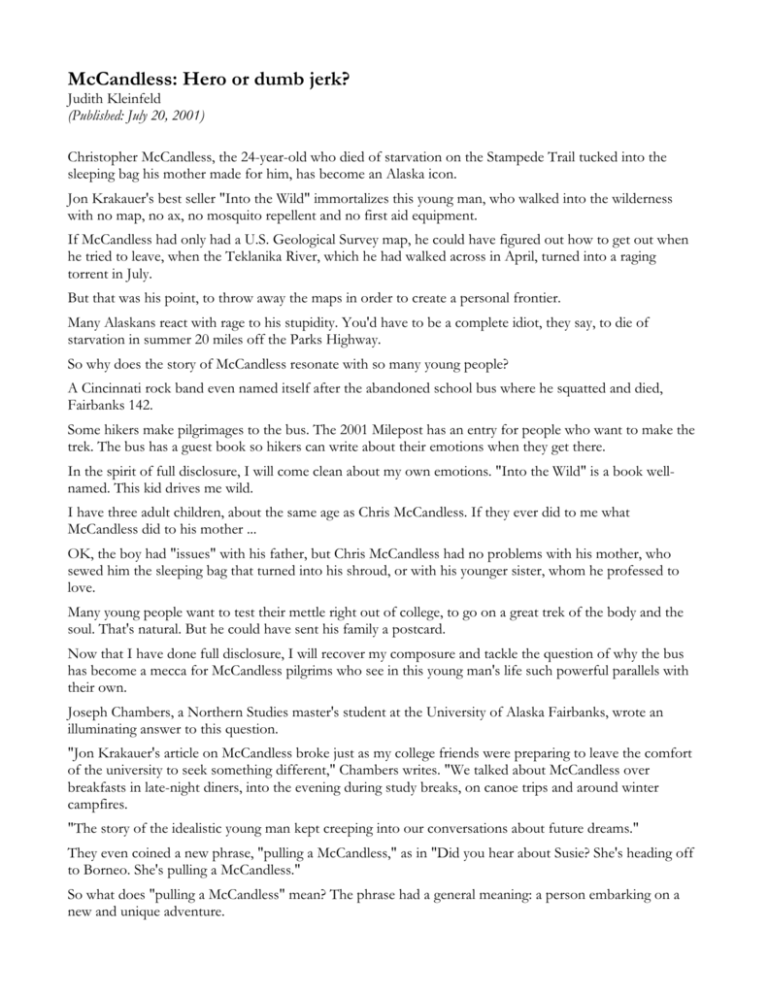
McCandless: Hero or dumb jerk? Judith Kleinfeld (Published: July 20, 2001) Christopher McCandless, the 24-year-old who died of starvation on the Stampede Trail tucked into the sleeping bag his mother made for him, has become an Alaska icon. Jon Krakauer's best seller "Into the Wild" immortalizes this young man, who walked into the wilderness with no map, no ax, no mosquito repellent and no first aid equipment. If McCandless had only had a U.S. Geological Survey map, he could have figured out how to get out when he tried to leave, when the Teklanika River, which he had walked across in April, turned into a raging torrent in July. But that was his point, to throw away the maps in order to create a personal frontier. Many Alaskans react with rage to his stupidity. You'd have to be a complete idiot, they say, to die of starvation in summer 20 miles off the Parks Highway. So why does the story of McCandless resonate with so many young people? A Cincinnati rock band even named itself after the abandoned school bus where he squatted and died, Fairbanks 142. Some hikers make pilgrimages to the bus. The 2001 Milepost has an entry for people who want to make the trek. The bus has a guest book so hikers can write about their emotions when they get there. In the spirit of full disclosure, I will come clean about my own emotions. "Into the Wild" is a book wellnamed. This kid drives me wild. I have three adult children, about the same age as Chris McCandless. If they ever did to me what McCandless did to his mother ... OK, the boy had "issues" with his father, but Chris McCandless had no problems with his mother, who sewed him the sleeping bag that turned into his shroud, or with his younger sister, whom he professed to love. Many young people want to test their mettle right out of college, to go on a great trek of the body and the soul. That's natural. But he could have sent his family a postcard. Now that I have done full disclosure, I will recover my composure and tackle the question of why the bus has become a mecca for McCandless pilgrims who see in this young man's life such powerful parallels with their own. Joseph Chambers, a Northern Studies master's student at the University of Alaska Fairbanks, wrote an illuminating answer to this question. "Jon Krakauer's article on McCandless broke just as my college friends were preparing to leave the comfort of the university to seek something different," Chambers writes. "We talked about McCandless over breakfasts in late-night diners, into the evening during study breaks, on canoe trips and around winter campfires. "The story of the idealistic young man kept creeping into our conversations about future dreams." They even coined a new phrase, "pulling a McCandless," as in "Did you hear about Susie? She's heading off to Borneo. She's pulling a McCandless." So what does "pulling a McCandless" mean? The phrase had a general meaning: a person embarking on a new and unique adventure. But "pulling a McCandless" had three other meanings that expressed the questions that accompany the selfdesigned rite of passage: "1. The Hero: A person following their dreams, seeking to test themselves with adversity and risk in order to live life fully. 2. The Soul Searcher: A person abandoning social conventions in an effort to seek truth and to discover the true self that remains hidden under social constraints. A person striving to stick to their deepest values and convictions no matter what the cost. 3. The Dumb Jerk: A person who is futilely questing for something meaningless or worthless. A person who is woefully unprepared for a trip, who clings to misguided, self-righteous principles, losing friends and hurting themselves and their family in the process." Which one of these was Christopher McCandless? And which one is Susie who is heading to Borneo? And which one are we all? McCandless' family placed a brass plaque on the school bus, above their son's worn-out hiking boots, patched with duct tape. The memorial reads: "Chris, our beloved son and brother died here during his adventurous travels in search of how he could best realize God's great gift of life. With his final message, I have had a happy life and thank the Lord. Goodbye and May God Bless All,' We commend his soul to the world." http://www.adn.com/opinion/story/634479p-678385c.html

